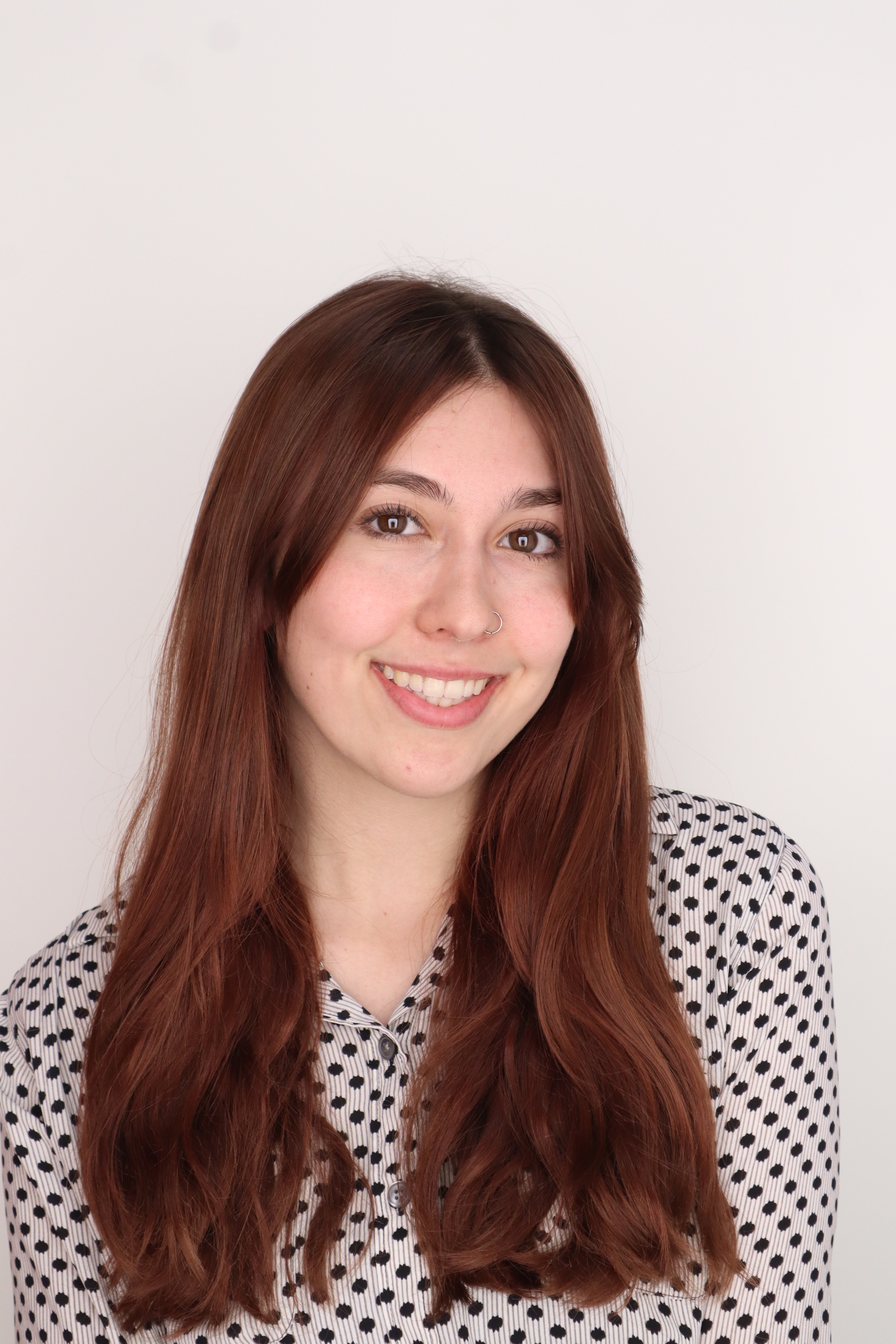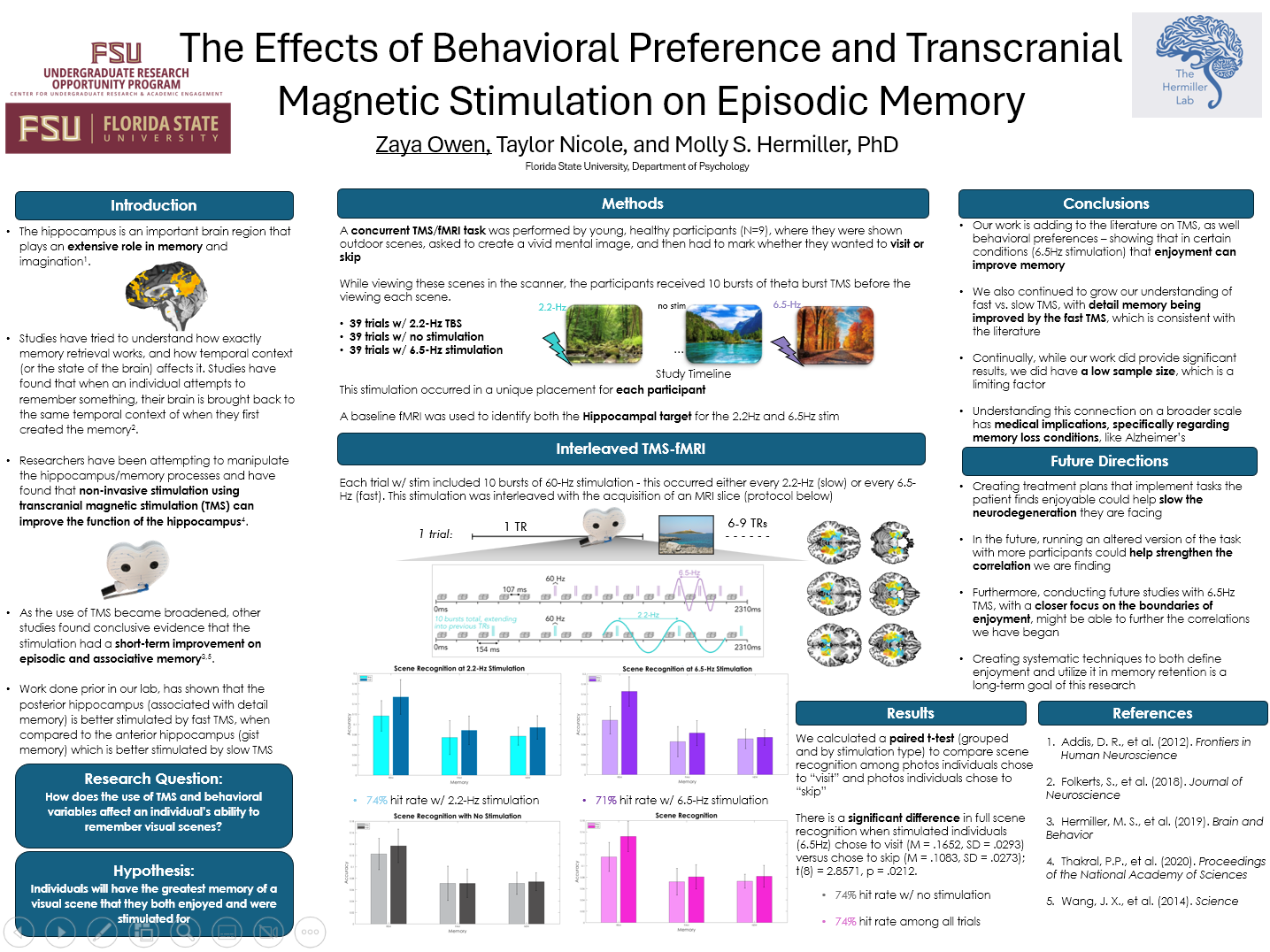Research Symposium
25th annual Undergraduate Research Symposium, April 1, 2025
Zaya Owen Poster Session 4: 3:00 pm - 4:00 pm/ Poster #93

BIO
I am a behavioral neuroscience major, who is predicted to graduate in the spring of 2026! I am from Orlando, Fl and moved to Tallahassee, Fl during my freshman year. I started working with the Hermiller Lab in the fall of 2024 for my UROP project and I am excited to work with them through the next school year, as well. I am very interested in the study of memory as well as the modulation of it using non-invasive Transcranial Magnetic Stimulation and look forward to continuing my study of it. Eventually, I do hope to attend graduate school and earn a PhD in neuroscience.
The Effects of Behavioral Preference and Transcranial Magnetic Stimulation on Episodic Memory
Authors: Zaya Owen, Molly HermillerStudent Major: Behavioral Neuroscience
Mentor: Molly Hermiller
Mentor's Department: Psychology Department Mentor's College: College of Arts and Sciences Co-Presenters:
Abstract
The hippocampus is the major brain region behind memory formation, and it has been found to be enhanced using transcranial magnetic stimulation (TMS). Our research aims to understand how behavioral preferences affect one’s memory, specifically when an individual receives this non-invasive stimulation. We scanned nine participants in an fMRI with each being shown 117 visual outdoor scenes. Short trains of TMS were delivered immediately prior to scene onset. For a third of trials, the TMS was delivered in a slow theta (2.2-Hz) pattern; for another third of trials, TMS was delivered in a fast theta (6.5-Hz) pattern; the final trials had no stimulation prior to scene presentation. Stimulation type was randomly interleaved throughout. While viewing each scene, the participants were instructed to create a mental image, and then select whether they would visit or skip. Afterwards, participants completed a recognition test, to gauge memory. We analyzed participants’ mean performance overall, as well as for each stimulation condition. Through a paired t-test, we saw that participants were significantly more likely to remember a location they had chosen to visit, while also having received 6.5-Hz stimulation. This shows how behavioral preferences can enhance the memory, especially when paired with TMS. There is little research on how behavioral preferences affect the hippocampus, and our results add to the literature by showing stronger recognition when enjoyment and 6.5-Hz stimulation occur. Understanding the connection between behavioral preferences and memory can have broad impacts, especially clinically for memory loss disorders.
Keywords: Memory, Neuroscience, TMS, Behavior

